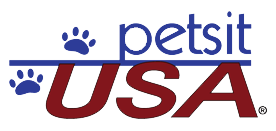Many pet sitters say they are “licensed, bonded, and insured” and proudly display it on their marketing materials and websites. What does all of this actually mean though? Insurance and bonding are pretty straightforward, but it’s the use of the word “licensed” that can be a bit confusing.
Bonding
Bonding is most appropriate for companies that hire employees. A fidelity bond (or dishonesty bond) usually insures a business in the event that an employee steals from a client. If this happens, and the employee is found guilty of theft, the bonding company will pay for the stolen items. Many sole-proprietors are bonded, but this is mostly for their clients’ peace of mind.
Licenses
A business license and a professional license are quite different, and anyone who hires a pet sitter should know what those differences are.
Business License
A business license is a permit, issued by a governmental entity, that allows an individual or company to operate a business in a particular geographical area. It can be issued by a city, town, or other entity, and can be issued to a pet sitter, a retail store, a bookstore, etc. – not just pet sitters. This type of license does not imply that the person obtaining the license has any expertise in the business he or she will operate.
Professional License
In order to work in certain professions, one must take specified coursework and then pass a test. Passing the test shows (ideally!) that people know their stuff, and it earns them a license to work in that profession.
There are no professional licensing requirements for pet sitters.
Anyone who wants to open a pet sitting business can do so without any formal training, and no licensing tests are required. Many pet sitters have taken pet related classes such as pet behavior, dog training, first aid, or business courses. Some pet sitters even take pet sitting business courses offered by private companies or trade groups, but classes such as this are not legal requirements to operate a pet sitting business.
So for many pet owners, when they see “licensed, bonded and insured” they assume the pet sitter has gone through some licensing coursework and testing. Since there are no professional licenses for pet sitters though, this isn’t the case. I don’t think pet sitters are intentionally trying to mislead potential clients this way but it can certainly be misleading for those who don’t realize there isn’t a pet sitter license.
I would like to see more pet sitters clearly state that they have a “business license” rather than just saying they are licensed. Either that, or simply leave off the fact that they have a business license. Personally, I don’t think it’s necessary as most businesses that operate in a professional manner do get the necessary business licenses and other permits for their area. And, of course, if a client were to ask if a pet sitter has a business license it would be a simple yes or no answer.
